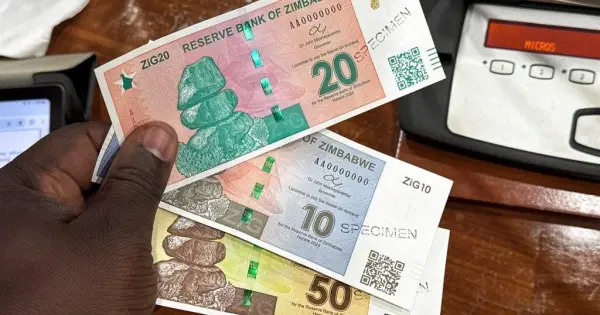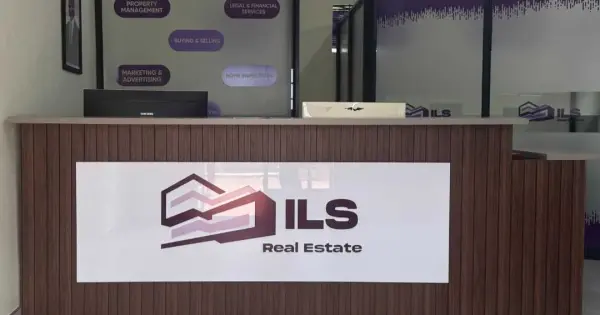In the shadow of Zimbabwe's economic fluctuations, the humble room rental has emerged as both sanctuary for tenants and financial lifeline for property owners. Yet behind this seemingly straightforward arrangement lurks a legal labyrinth that many landlords navigate blindfolded—until the inevitable misstep triggers costly consequences.
The Legal Foundation: Not Just Paperwork, But Protection
The bustling neighbourhoods of Avondale, Borrowdale, and Milton Park haven't just become hotspots for room rentals; they've become testing grounds for Zimbabwe's rental laws. Your property dealings fall squarely under the Housing and Building Act (Chapter 22:07) and its accompanying Rent Regulations (SI 32/2007)—not merely suggestions, but legal requirements with teeth.
The wise landlord begins with documentation. While verbal agreements might seem sufficient in the moment, they crumble under scrutiny when disputes arise. A proper lease agreement isn't bureaucratic overkill—it's your first line of defense.
Your rental agreement should clearly specify:
- Complete identification details for both parties
- Precise description of the rented space
- Rent amount, currency, and due dates
- Security deposit terms and return conditions
- Duration of the agreement
- Maintenance responsibilities
- House rules for shared spaces
When everything is in black and white from the beginning, both sides know exactly where they stand. This clarity isn't just good business—it's good sense in Harare's competitive rental market.
The Invisible Dance: Tenant Selection and Verification
Zimbabwe grants landlords considerable latitude in choosing tenants, but with this freedom comes responsibility. For those renting rooms in prime Harare locations commanding $180-250 monthly, the temptation to skip verification when faced with immediate payment can be strong. Resist it.
Required tenant verification should include:
- National identification card
- Proof of residence
- Employment verification or income source
- Previous landlord references (though not legally mandated, these are gold)
This verification process isn't mere formality—it's the foundation of a stable rental arrangement. The few days spent confirming details can save months of headaches later.
Money Matters: Deposits, Taxation, and the Numbers Game
Unlike more regulated global markets, Harare's room rental scene operates with surprising financial flexibility—but don't mistake flexibility for lawlessness.
Security Deposits: While Zimbabwe sets no statutory limit, market practices have established norms of 1-3 months' rent. Always document these transactions meticulously and provide proper receipts. The savvy landlord maintains separate accounts for these funds.
Taxation Realities: ZIMRA doesn't consider your rental income invisible. Register it, record it, receipt it, report it. Many room landlords don't realize they need to declare this income. Basic record-keeping now prevents painful tax complications later.
The Rules of Engagement: When and How to Increase Rent
Here's where many landlords stumble into legal quicksand. Rent increases aren't simply announced—they're executed through a carefully choreographed legal process.
The Two-Month Rule: Any rent increase requires at least two calendar months' written notice, ending on the month's last day. Notice given on March 10th must cover April and May, expiring May 31st. This isn't negotiable—failure to provide proper notice invalidates your increase.
The 30% Threshold: By practice, landlords may unilaterally raise rent by up to 30% of the current amount. However, any increase beyond that magical 30% mark requires Rent Board approval. Yes, you read that correctly—the government must sign off on substantial increases.
The Six-Month Shield: No increases are permitted during the first six months of a new lease unless your tenant explicitly agrees. This protection gives tenants breathing room to establish themselves before facing higher costs.
The Rent Board Reality: This isn't just bureaucratic interference—it's the law. Either party can petition the Rent Board for a new rent order, and landlords must justify increases with evidence of higher maintenance costs or property improvements. The resulting order typically stands for one year.
Remember: Without a Rent Board certificate, courts won't enforce higher rents or evict tenants for non-payment of increased amounts. The system has checks and balances that cannot be circumvented.
Your Obligations: The Non-Negotiables
The law demands that landlords maintain habitability standards:
- Weatherproof structures with functional doors and windows
- Access to adequate water
- Proper sanitation facilities
- Reasonable security measures
- Electrical safety compliance
- Adequate ventilation and lighting
Additionally, you must respect tenant privacy:
- Provide 24-hour notice before entering occupied rooms
- Document emergency access situations
- Avoid harassment through frequent "inspections"
- Never change locks without tenant access
When Things Go Sideways: Eviction Procedures
Perhaps the most perilous legal territory involves removing tenants. Zimbabwe's courts consistently protect tenants against improper evictions, and for good reason.
Legal eviction requires:
- Valid grounds (non-payment, property damage, illegal activities)
- Proper written notice (typically 30 days)
- Court order if the tenant refuses to leave
- Official enforcement through court messengers
One pattern we repeatedly observe involves improper evictions," notes Propertybook's property consultant. Following proper procedures may take longer, but changing locks or removing property without court sanction creates far more problems than it solves.
Neighbourhood Nuances: Location Matters
Harare's neighbourhoods operate under varying regulations:
- Avondale: Higher density zoning permits multiple single rooms but requires additional bathroom facilities for every four occupants
- Borrowdale: Stricter residential zoning may restrict multiple room rentals in certain sections
- Milton Park: University proximity creates specialized regulations for student housing
Always verify compliance with local ordinances through City of Harare offices before converting property to room rentals.
Digital Solutions for Ancient Problems
Zimbabwe's property sector has embraced technology, offering landlords powerful compliance tools:
- Digital payment platforms create automatic transaction records
- Property management software generates compliant lease agreements
- Electronic communication documents all tenant interactions
- Online maintenance requests timestamp repair records
These digital solutions address what was historically the greatest challenge in room rental management—maintaining proper documentation of every interaction.
The Bottom Line: Practicality & Legality
Room rentals in Harare offer stable income when managed with knowledge and foresight. The most successful landlords maintain clear documentation, provide decent living conditions, respect tenant rights, and follow legal procedures meticulously.
By understanding these regulations—particularly around rent increases and evictions—you transform your rental property from potential legal liability into reliable income source. The rules may seem cumbersome, but they establish the framework within which profitable, hassle-free rental businesses operate.
For guidance on your specific property situation, contact Propertybook today. With connections to over 2,000 agents and 7,000+ listings, we understand the unique dynamics of Harare's rental market and can help you navigate its complexities successfully.
Looking for more legal property guidance? Consult a legal practitioner.




